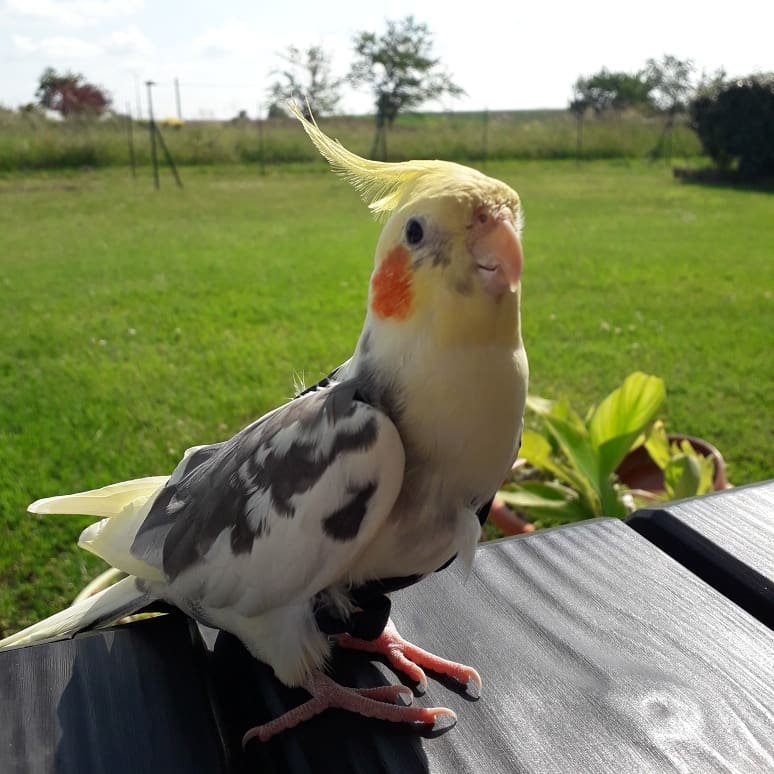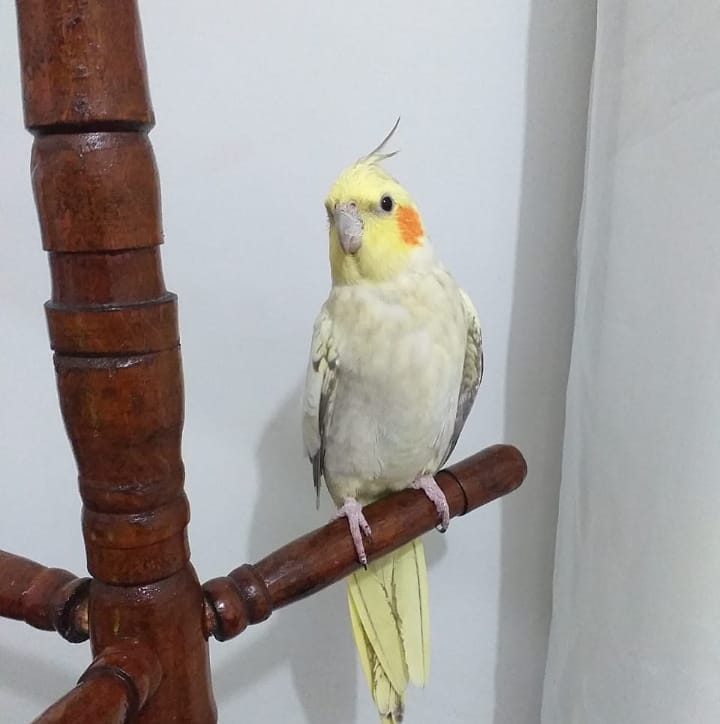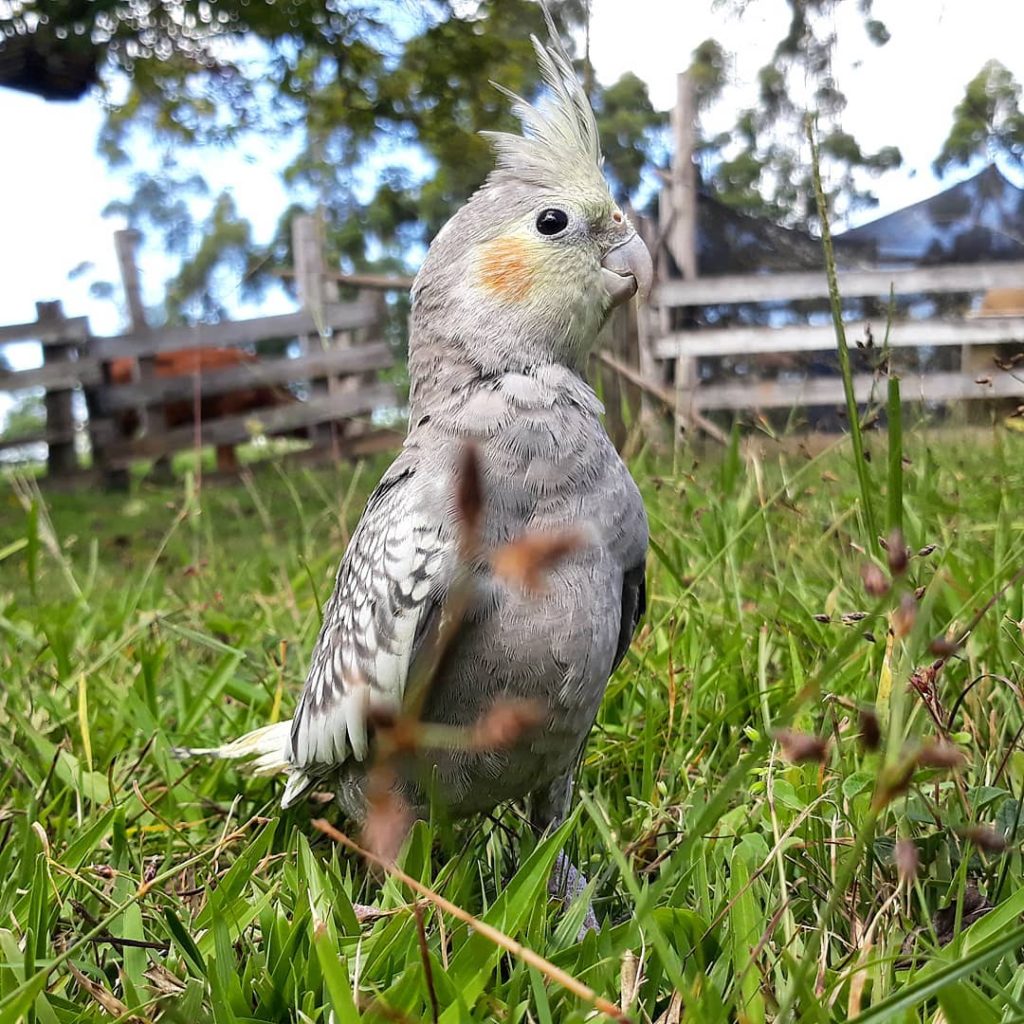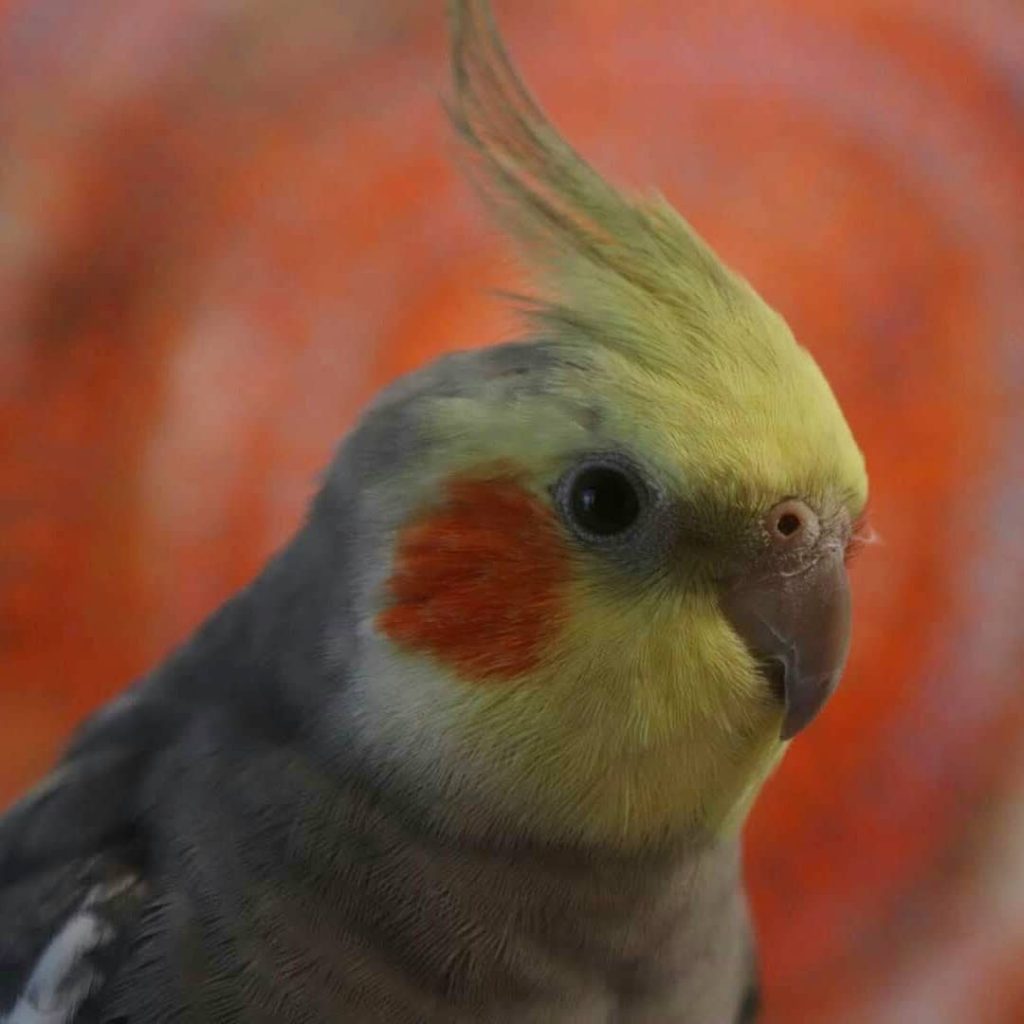The cockatiel is America’s favorite pet bird for a variety of reasons, including being cuddly, extroverted, and humorous. Cockatiels are also skilled whistlers, with male cockatiels in particular recognized for their whistle serenades directed at a favorite person, item, or mirror reflection. When they’re not whistling or exploring for food and fun around the cage, cockatiels enjoy snuggling on their favorite person’s shoulder. A healthy, well-socialized cockatiel is an excellent family companion and is also suitable for apartment living.
They appear in a range of color variations, some more uncommon than others. The price of a specific color mutation might vary substantially depending on its popularity and current availability.
Cockatiels are native to Australia’s semiarid regions. This open setting could explain why cockatiels lack the loud cry of parrots from dense rainforest situations. Wild cockatiels fly to the ground to seek food. Cockatiels breed easily in the wild and in captivity, making them more affordable as pets than most other parrot species. Wild cockatiels are continually on the lookout for predators and are light sleepers. A pet cockatiel may experience night-fright episodes, in which it thrashes around the cage as if startled. Leave a night light on in your cockatiel’s room to assist it find its way back to its perch.

What You Should Know Before You Get a Cockatiel
Cockatiels are known for requiring their owners’ attention regularly, so be sure you have the time and dedication to keep a cockatoo.
It is better to get a young bird that has been handfed. If it was nurtured by its parents, it should have been handled frequently and be pretty tame by now.
Do Cockatiels Need A Companion?
Cockatiels are particularly social birds and will become depressed if left alone for an extended amount of time. Unlike many birds, they can live without a spouse; however, if they do, they will require a lot of attention from their owners. They will start to regard their owner as a friend and wish to communicate with them frequently. Cockatiels are quite docile and do not get along well with other birds. They may bang their heads against cages, pluck their feathers, refuse to eat, or become enraged.
Cockatiel Care Guide
A cockatiel requires a large cage to contain various perches, toys, and food bowls, as well as enough space for its wings to flap without touching anything.
A cage with a large door front is great since it makes it easier to return a cockatiel, which can be a flighty birds. Cockatiels are natural ground foragers and will forage on the bottom of the cage if given the option; cover the cage floor with newspaper and scatter crumbled treats or millet sprinkle seed for your cockatiel to discover. Cockatiels are social birds who thrive when allowed to interact with you, whether gently caressing their cheek feathers, talking to them or simply being in the same room as you.
Males have significantly brighter plumage, with more yellow on the cheeks and crest.
However, sex might be difficult to establish in extremely young birds. Both sexes make good pets, although it is not suggested that you place mirrors in the cages of male cockatiels since they may strut around to show off and may get aggressive to protect their “mate.”
Cockatiels are incredibly intelligent and easy to handle, thus training them takes very little time. A single bird is easier to tame and train than two birds, as they prefer each other’s company above yours. Females are inherently quieter, thus males are simpler to train to speak.
Cockatiels love climbing and stretching their wings, as well as playing. Keep the quantity of toys and accessories in the cage light so that you don’t inhibit the bird’s movements. They enjoy a variety of toys such as seed treats, swings, ladders, bells, and mirrors. Tree branches and wooden chews provide excellent exercise and keep the beak trim. Bright shiny plastic toys are for parakeets, not cockatiels! Never give a cockatiel rubber toys!
A tame cockatiel will love a parrot playpen outside of its cage. It makes an excellent cockatiel toy and may be customized with ladders, perches, swings, and hanging toys. A cockatiel needs 10 to 12 hours of relaxation per day to be healthy and well-adjusted.
Sexual behavior: Males will strut and show off. Avoid mirrors. Hens generally don’t become aggressive but don’t encourage egg laying by giving any nesting material or sleeping huts.
Breeding: Cockatiels are prolific breeders and generally good parents. Hand-feeding might be challenging for beginners because these birds tend to sour their crops. Many breeders avoid commercial formulations because they believe the excessive protein level creates sour crops.

Cockatiel Diet
Fresh food and water must be provided every day.
Pelleted diets provide a well-balanced diet, but they lack the phytonutrients (antioxidant pigments) found in vegetables, fruits, grains, and seeds. These should be supplemented with green foods including dandelion leaves, weeds, carrot tops, celery, watercress, spinach, peas, seedling grasses, and millet.
Apples, oranges, bananas, and other fruits will be consumed as well. Proteins are available in the form of mynah pellets, dog food, or mashed hard-boiled eggs. Cockatiels are notoriously picky eaters, so starting them on a balanced diet right away is good for both them and your sanity.
Avoid giving your bird sweet treats; cockatiels are prone to diabetes.
Avocados can be harmful to birds, so avoid feeding them! Although it was previously believed that cockatiels required grit, it has been shown that they do not and can cause problems if given grit.
Grit is essential for parrots that consume the seed whole without first shelling it; however, cockatiels must shell their seed before eating it, hence grit should not be provided. Cuttlebones are important to provide calcium and keep the beak clean.
Cockatiel Lifespan
Their lifespan is 15-20 years, but I have heard that cockatiels can live much longer. A healthy diet and regular exercise can dramatically improve their life expectancy. Get them a cage large enough for them to flap their wings and play.
Ten to fourteen years in the wilderness.
Cockatiel Sounds
Cockatiels are more likely to whistle than talk. Male cockatiels are more likely to communicate than females, and some can learn to say a few words or phrases. Cockatiels chirp rather than screech, and their relatively low noise level makes them an ideal apartment pet. If you leave the room, your cockatiel may chirp a contact call in an attempt to communicate with you.
Distinctive sound is not offensive. Very nice chirping. Whistles easily, therefore if you don’t want the bird to whistle, don’t whistle at it; it will rapidly learn.

Cockatiel Health Issues
Cockatiels are robust birds. Like other parrots, they should not be kept near drafts.
They can develop fatty tumors, thus avoiding high-fat meals (no seed-only diets). To avoid frightening the bird, keep the cage away from windows where headlights may flash at night.
A cockatiel will often sneeze a few times per day to eliminate dust or dander from its nares, which may be accompanied by a clear discharge. If the sneezing persists and/or the discharge is not clear, consult your avian veterinarian.
Cockatiels are good fliers and require more regular wing trimming than other parrot species because they can fly shortly after having their feathers cut.
Cockatiels molt (shed old feathers and grow new ones) a few times per year.
It’s crucial to realize that cockatiels come with unique concerns that may affect your decision in picking a cockatiel as a pet.
Cockatiel Dust: Cockatiels can produce a lot of bird dust. This dust is made up of white powder-down feathers that develop close to the bird’s skin. These feathers appear among the down feathers and are utilized to help insulate the bird.
The powder-down feathers are remarkable in that the tips crumble into fine dust as the bird preens, dispersing the powder throughout the feathers and contributing to the bird’s waterproofing. Most individuals are unaffected by the dust, but for others, it can cause respiratory problems and even exacerbate asthma.
Egg-Laying Cockatiels: Even if there is no male present. Frequent egg-laying is a concern in cockatiels, and while egg-laying is biologically intrinsic, many female cockatiels lay far too many eggs in a row, posing health risks. Just because she is laying eggs does not imply that your cockatiel requires or desires a mate or offspring. It indicates her body has received external signals that it is time to nest, and she is unable to control her instincts.
Cockatiels’ respiratory system is extremely delicate, and they can rapidly succumb to fumes.
Fumes from nonstick coating pans such as Teflon, candles, air fresheners, aerosol sprays, and chemicals used to clean your home can be fatal to a cockatiel.
Cockatiels have long tails and require a larger bird cage; otherwise, their tails will rake against the bars, dip into the water cup, or harm themselves. Cockatiels, too, must exercise to avoid becoming “perch potatoes.” Overweight cockatiels are more likely to develop fatty tumors, gout, heart disease, and other health problems.

